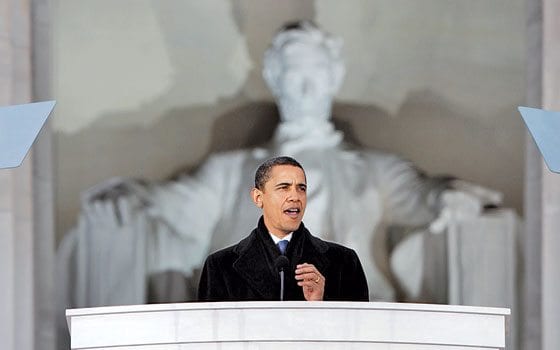

In the centuries since African Americans first arrived on our shores, they have known the bitterness of slavery and oppression, the hope of progress and the triumph of the American Dream.
African American history is an essential thread of the American narrative that traces our nation’s enduring struggle to perfect itself. Each February, we recognize African American History Month as a moment to reflect upon how far we have come as a nation, and what challenges remain.
This year’s theme, “The History of Black Economic Empowerment,” calls upon us to honor the African Americans who overcame injustice and inequality to achieve financial independence and the security of self-empowerment that comes with it.
Nearly 100 years after the Civil War, African Americans still faced daunting challenges and indignities. Widespread racial prejudice inhibited their opportunities, and institutional discrimination such as black codes and Jim Crow laws denied them full citizenship rights.
Despite these seemingly impossible barriers, pioneering African Americans blazed trails for themselves and their children. They became skilled workers and professionals. They purchased land, and a new generation of black entrepreneurs founded banks, educational institutions, newspapers, hospitals and businesses of all kinds.
This month, we recognize the courage and tenacity of so many hard-working Americans whose legacies are woven into the fabric of our Nation. We are heirs to their extraordinary progress. Racial prejudice is no longer the steepest barrier to opportunity for most African Americans, yet substantial obstacles remain in the remnants of past discrimination. Structural inequalities — from disparities in education and health care to the vicious cycle of poverty — still pose enormous hurdles for black communities across America.
Overcoming today’s challenges will require the same dedication and sense of urgency that enabled past generations of African Americans to rise above the injustices of their time. That is why my administration is laying a new foundation for long-term economic growth that helps more than just a privileged few.
We are working hard to give small businesses more much-needed credit, to slash tax breaks for companies that ship jobs overseas and to give those same breaks to companies that create jobs here at home. We are also reinvesting in our schools and making college more affordable, because a world-class education is our country’s best roadmap to prosperity.
These initiatives will expand opportunities for African Americans, and for all Americans, but parents and community leaders must also be partners in this effort. We must push our children to reach for the full measure of their potential, just as the innovators who succeeded in previous generations pushed their children to achieve something greater.
In the volumes of black history, much remains unwritten. Let us add our own chapter, full of progress and ambition, so that our children’s children will know that we, too, did our part to erase an unjust past and build a brighter future.
Now, therefore, I, Barack Obama, president of the United States of America, by virtue of the authority vested in me by the Constitution and the laws of the United States, do hereby proclaim February 2010 as National African American History Month. I call upon public officials, educators, librarians and all the people of the United States to observe this month with appropriate programs, ceremonies, and activities.






